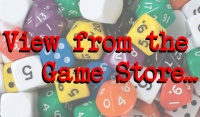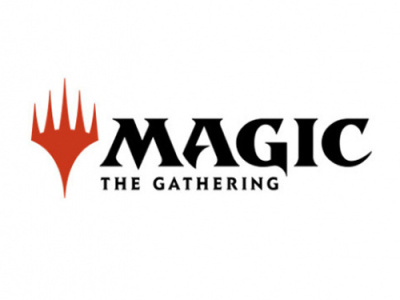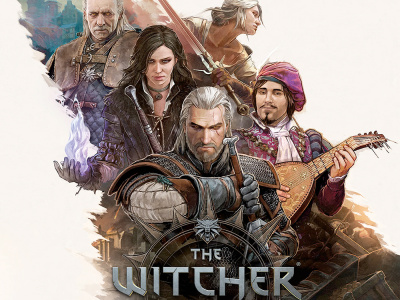 View from the Game Store is a weekly(-ish) column by Marcus King, owner of Titan's Entertainment Cafe in Battle Creek, Michigan. This week, Marcus talks about the changing game industry.
View from the Game Store is a weekly(-ish) column by Marcus King, owner of Titan's Entertainment Cafe in Battle Creek, Michigan. This week, Marcus talks about the changing game industry.Very seldom does a paradigm shift in the Games Industry occur. It usually takes both a shift in the type of game, the popularity of said gaming, and the marketplace -- all pretty much simultaneously -- to cause such a shift. It happens every dozen years or so. These are what we will call trends. To understand, trends are things that cause a shift in the way things are done. Fads, however, are not. For example, European-style boardgames is a trend. Pogs were a fad.
In my lifetime those shifts have occurred starting in the early 70's when a few friends playing miniatures in Wisconsin asked the question (paraphrasing), "what if this one miniature was much stronger than the others?" And that seed grew to become Chainmail and then Dungeons & Dragons was planted. The concept that one figure might be a 'hero' while others were just 'line troops' began, and then became the "what if several hero's got together and battled as a group" and role-playing was born. Over the 70's the role-playing trend (though people thought it was a fad at the time) took hold and by the end of the 70's there were several solid RPGs.
This continued into the 1980's and saw companies like Judges Guild, GDW and others take hold and publish a wide variety of role-playing games. Eventually, even non-gamer dorks knew what a d20, d12 and d8 were for. Well, maybe not a d12 -- I mean, does anybody know what a d12 is for?
In the 1980's another paradigm shift in the game industry began -- that of both home arcade games, and PC games. By the late 80's RPGs had grown so diverse that most game stores could not carry all the RPG games they were offered by distributors. At the same time things like the Nintendo Entertainment System had launched, as well as PC games on the TRS-80 and the Commodore 64. By the late 80's, Pool of Radiance was bringing Dungeons & Dragons to a whole new generation of gamers. And it was also taking D&D into a new genre of gamers -- those who had never rolled a d20!
At the same time, during the 80's, the miniatures games revolution was in full swing with a company called Citadel/Games Workshop, as well as with a new game called BattleTech. And it was during this time, in 1986-1989, that I owned my first game store in Anchorage, Alaska and I could not keep Warhammer or BattleTech in stock. The store had up to 40 gamers playing either game every weekend in our events.
The next real paradigm shift came with Magic: The Gathering and later Pokemon -- two related, but unique, gaming shifts in the 1990's. Suddenly, a new thing had occurred: selling the same product (the booster pack) to the same customer repeatedly. In many cases this meant the retailer could sell the same one product to the same few customers so often that it would make their store profitable. Not only were CCGs born, but so was collectible gaming. And in the later 90's this also led to CMGs (collectible miniatures games) -- namely HeroClix.
Collectible games could be so hugely profitable that there was soon a glut on the market that has caused, literally, a different paradigm shift: that of customer resistance to new collectible products. Many good card games were launched as collectible games and customers avoided them in such numbers -- they collapsed under their own weight. Had many of those games been launched as non-collectible card games, they'd have seen the great sales, and market stability, such that Munchkin or Apples to Apples (both expandable, but not collectible, card games). Alas, the jackpot money of the CCG hit -- though about as rare as hitting the lottery -- had caused many a company to invest big in the hopes of cashing in.
Collectible Games had another effect on the industry which was a little unforeseen. It has caused the demise of many a game store. Both due to the speculation on unsuccessful CCGs and CMGs, but also from the standpoint of being too dependant on one game to support a healthy store. Being too dependent on one product is never good, be that product Magic, Warhammer, Pokemon or HeroClix. It's not a healthy business model to be too dependent on that one title, as many a store owner found out in the early 2000's when another paradigm shift occurred.
The access to fast internet service and the marketplaces driven by Amazon, eBay and others -- where the collectible game is nothing more than a commodity to be sold by the bushel (you know, sort of) -- and the shift of those same Magic, Pokemon and HeroClix customers to buying at the cheapest price online rather than in stores resulted in many a thriving game center closing its doors. Had those same stores had a wide variety of RPGs, war games, video games and other entertainment merchandise they'd have likely weathered that particular shift much more effectively.
Today I'm starting to see a new trend, but maybe it will turn out to be a fad. It’s that of RPG publishers offering PDF versions of their printed books to go along with the book. This past week Green Ronin announced a program where if you preorder your RPG book through your local retailer. And that retailer will be able to provide you with a product code to download the PDF with your purchase. Shortly thereafter, I was told by the good folks at MWP (Margaret Weis Productions) that their current books and all upcoming releases, also come with a free PDF with purchase of the printed version. In this program, as the retailer, I give you a code with your book purchase that you then email to MWP and they're emailed back the PDF of that book.
Could this be a trend? Could this be the mid to small tier publishers way to gain market share by supporting the brick and mortar retailer in a way that drives customers to the stores? Well, quite obviously, as a brick and mortar retail store 'owner,' you won't be surprised that I hope that is exactly what happens (that is the sound of my applauding the efforts of MWP and Green Ronin in supporting retail stores).
And as I have often said, the only constant in the game industry is change and in my opinion, this could be a good one!
The opinions expressed in this column are solely those of the writer, and do not necessarily reflect the views of the editorial staff of ICv2.com.







